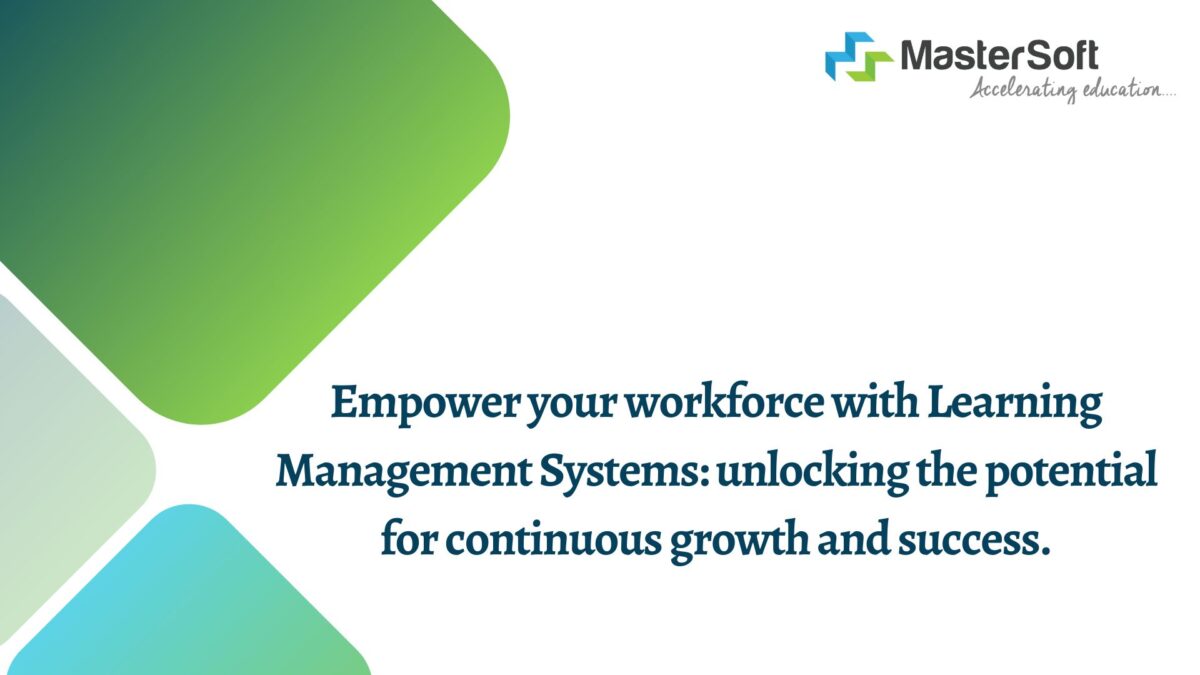The Impact of Learning Management Systems in Business

In today’s fast-paced business environment, effective training processes are essential for fostering employee development and organizational success. Learning Management System (LMS) have emerged as powerful tools for streamlining training processes and maximizing learning outcomes. This blog explores the transformative impact of Learning Management Systems in business settings.
Understanding Learning Management Systems (LMS)
Learning Management Systems (LMS) serve as digital platforms designed to manage, deliver, and track training programs and educational content. These systems provide a centralized hub where businesses can create, organize, and distribute training materials, while employees can access resources, participate in courses, and track their progress.
The Evolution of Training Processes
Traditional training methods often involve manual processes, such as in-person workshops, printed materials, and Excel spreadsheets for tracking progress. While these methods may have served their purpose in the past, they are often inefficient, time-consuming, and prone to errors. With the advent of Learning Management Systems, businesses can now automate and streamline training processes. Saving time and resources while enhancing the overall learning experience.
Key Features of Learning Management Systems
Learning Management Systems offer a wide range of features designed to optimize training processes. These include content creation tools, assessment capabilities, progress tracking, certification management, and reporting functionalities. By providing a user-friendly interface and intuitive navigation, LMS empower businesses to deliver engaging and interactive training experiences that cater to the diverse needs of their workforce.
Enhancing Accessibility and Flexibility
One of the primary advantages of Learning Management Systems is their ability to deliver training content anytime, anywhere. With LMS, employees can access training materials from any internet-enabled device, allowing for greater flexibility and convenience. This accessibility ensures that employees can engage in training activities at their own pace and on their own schedule, without being tied to a specific location or time.
Improving Engagement and Retention
Engagement is key to the success of any training program. Learning Management Systems leverage multimedia content, interactive assessments, and gamification elements to enhance engagement and retention. By incorporating videos, quizzes, simulations, and badges into training modules, businesses can create immersive and enjoyable learning experiences that motivate employees to actively participate and retain information.
Tracking Progress and Performance
Learning Management Systems enable businesses to track employee progress and performance in real-time. Through built-in analytics and reporting tools, businesses can monitor completion rates, assessment scores, and skill proficiency levels. This data-driven approach allows businesses to identify areas of strength and improvement, tailor training content to individual needs. Measure the impact of training initiatives on organizational goals.
Ensuring Compliance and Certification
Compliance training is a critical aspect of many businesses, particularly in highly regulated industries such as healthcare, finance, and manufacturing. Learning Management Systems streamline the process of delivering and tracking compliance training, ensuring that employees receive the necessary certifications and remain up-to-date on industry standards and regulations. By automating compliance workflows and generating audit trails, businesses can mitigate risk and demonstrate regulatory compliance more effectively.
Driving Organizational Growth and Success
Ultimately, the impact of Learning Management Systems extends beyond streamlining training processes to driving organizational growth and success. By investing in employee development and fostering a culture of continuous learning, businesses can empower their workforce to acquire new skills, adapt to change, and contribute to innovation and productivity. Learning Management Systems play a crucial role in facilitating this process, providing businesses with the tools and technologies needed to thrive in today’s competitive landscape.
Facilitating Continuous Learning and Development
Continuous learning and development are essential for employees to stay competitive and adapt to evolving job roles and industry trends. Learning Management Systems (LMS) facilitate this process by providing access to a wide range of training materials and resources. Employees can engage in self-paced learning, explore new topics of interest, and acquire new skills to advance their careers within the organization. With LMS, businesses can foster a culture of continuous improvement and innovation, empowering employees to stay relevant in an ever-changing business landscape.
Promoting Knowledge Sharing and Collaboration
Knowledge sharing and collaboration are critical components of organizational success. Learning Management Systems (LMS) promote these practices by providing forums, discussion boards, and social learning features. Employees can exchange ideas, ask questions, and share best practices, facilitating peer-to-peer learning and fostering a sense of community within the organization. By leveraging the collaborative features of LMS. Businesses can harness the collective expertise of their workforce and drive innovation and problem-solving.
Embracing Innovation and Future Trends
As technology continues to evolve, Learning Management Systems (LMS) must adapt to meet the changing needs of businesses and learners. It is essential for businesses to stay abreast of emerging trends, such as mobile learning, microlearning, and adaptive learning, to ensure that their training initiatives remain relevant and effective. By embracing innovation and incorporating new technologies into their LMS, businesses can enhance the learning experience, improve engagement, and drive better outcomes for their employees. Moreover, by anticipating future trends and staying ahead of the curve. Businesses can position themselves for success in an increasingly competitive market landscape.
Conclusion:
In conclusion, Learning Management Systems have revolutionized training processes in business settings. Offering a seamless and scalable solution for delivering effective learning experiences. From enhancing accessibility and flexibility to improving engagement and retention, LMS enable businesses to optimize training initiatives and drive organizational growth and success. As businesses continue to prioritize employee development and invest in learning technologies, the role of Learning Management Systems will only become more integral in shaping the future of work.
Read More Blog Here










